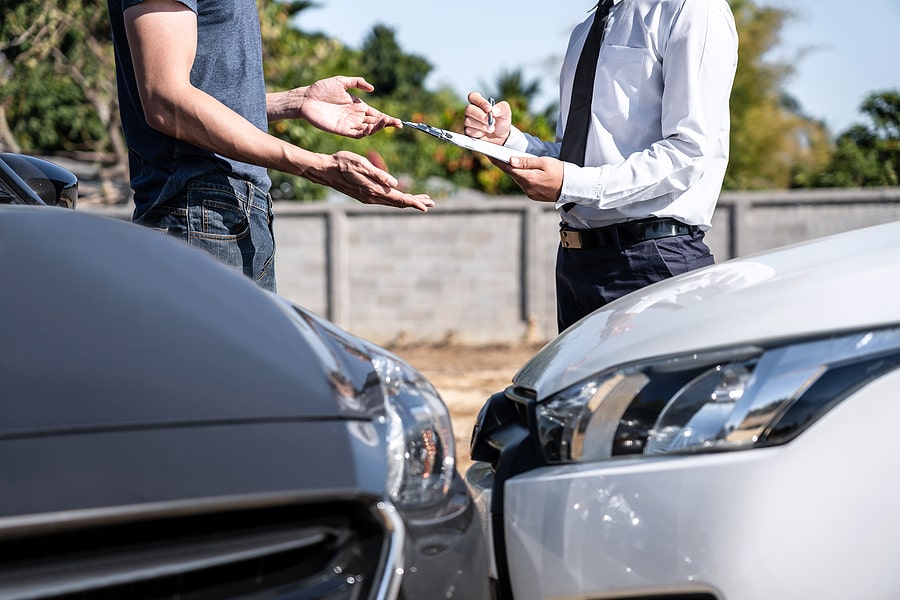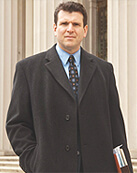
How much your auto insurance can increase after an accident will depend on your insurance provider, who is at fault for the accident, and other factors. In general, however, the cost of a car insurance policy could increase up to 34 percent for accidents where the policyholder is at fault, and the crash involved severe bodily injury and/or property damage.
Also, it’s common for younger drivers to experience increased auto insurance premiums since insurance carriers generally consider them potentially risky customers. A minor fender bender in a parking lot, however, won’t usually have the same effect as major car accidents. Additionally, in some states, insurance companies won’t increase insurance premiums if the value of the claim is not that high.
On the other hand, you can expect your auto insurance premiums to go up if the accident involved serious damage to people and/or property. Likewise, if you have multiple accidents on your driving record, you can expect even higher rate increases because your insurance provider will consider you a potentially risky driver. But what if you did not cause the car accident?
Will My Car Insurance Premiums Increase if the Accident Was Not My Fault?
Fortunately, not all car accidents are the same, and some accidents won’t increase your premiums.
Here are some examples:
- A hit-and-run driver struck your car. Make sure to report the incident to the police and your insurance provider as soon as you discover the damage.
- The other car’s driver was charged or convicted of a traffic violation related to the accident, and you were not.
- Your car was damaged while it was parked legally.
- Another vehicle struck the rear of your car, and you did not receive a violation associated with the incident.
- Flying gravel, falling objects, construction or road debris, and similar items damaged your car.
- The accident resulted from a crash with a fowl or animal.
- The at-fault driver reimbursed you for the damage.
- A court judgment exists against the driver who caused the car accident.
- Car accidents where claim payments will come from personal injury protection coverage (PIP) and not from collision or liability insurance coverage.
- Your auto insurance provider has already recovered 80 percent or more of a collision claim via subrogation, which means that it has received payments from the at-fault driver’s auto insurance provider.
- The car accident occurred while you were on your way to an emergency, and you’re a volunteer or an employee of a law enforcement agency, first aid squad, or the fire department.
Proving That You Did Not Cause the Car Accident
Your insurance provider will need proof that you did not cause the accident.
In general, insurance companies consider the following valid evidence:
- The accident police report clearly stating who caused the car accident.
- An official document that shows the at-fault driver reimbursed you for the damage.
- An official statement from the at-fault driver’s insurer accepting liability for the accident.
- The at-fault driver’s written statement clearly stating fault for the accident.
When Your Car Insurance Rates May Increase After a Car Accident
In some instances, accidents that you did not cause might trigger your auto insurance. If you were in a car accident that another driver caused, or someone hit your legally parked car, you might still have to file an insurance claim with your own provider, which might then work with the liable driver’s insurance provider. And unfortunately, it’s up to your insurance provider to decide whether or not to raise your premiums.
For example, based on a 2017 Consumer Federation of America study, drivers in Queens, New York, found that their rates increased by up to $401, and drivers in Baltimore found that their rates increased up to $258 following an accident that was not their fault. In addition, insurance giants GEICO and Progressive increased their policyholders’ auto insurance rates by more than ten percent following a no-fault car accident, while Allstate raised their policyholders’ rates by up to five percent following an accident that the policyholders did not cause.
Likewise, while accidents covered under comprehensive insurance do not generally cause a rate increase, your insurance provider will still record these claims. The problem with this is that insurance companies commonly regard drivers with multiple claims on their record as having an increased risk of filing for future insurance claims, which could translate into increased rates. Essentially, it all boils down to how insurance carriers calculate risk, such that having previous accident claims, even if you didn’t cause them, could make you seem like a risky client—hence, higher auto insurance premiums.
Furthermore, insurance companies will need to cover the medical bills of policyholders who live in no-fault states regardless of who was liable for the car accidents. Similarly, if an uninsured or underinsured motorist hits your car, your insurance policy will shoulder the expenses, depending on your specific type of coverage. Your insurance provider will take into account considerations such as these when re-estimating your insurance rates.
What if My Auto Insurance Company Increases My Rate Unfairly?

If you get into a car accident through no fault of your own or an accident involving an uninsured or underinsured motorist, it’s best to ask your insurance provider directly if your rate will increase and by how much. If you find out that yes, your rate will be increasing significantly because of an accident you did not cause, you may have a claim for bad faith insurance. Your insurance company should have your back and not punish responsible drivers like you for getting into an accident due to another’s negligent driving. Sadly, this is sometimes not the case.
After a car accident that left you with serious injuries, the damages you suffered can lead to financial and emotional strain for you and your loved ones. When pursuing an accident claim for compensation, you shouldn’t have to also worry about your auto insurance rates rising. If your car insurance provider increased your rates following a car accident that you didn’t cause, an attorney could review your case to determine if you have a claim for bad faith. An attorney can also help you with a car accident claim to help ensure that you receive the compensation you deserve.
Finally, shop around—you may find a better policy for less money than you paid before your accident.



